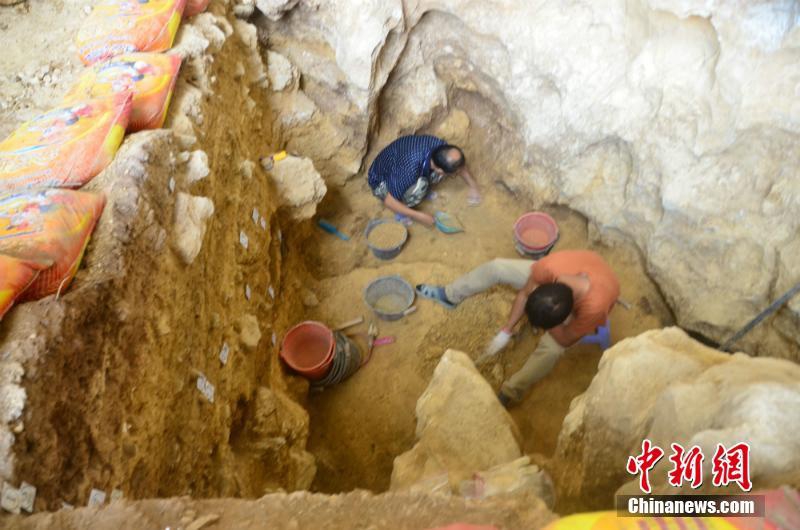
It provides some necessary functions for the implementation of the system, mainly including the basic settings of the system and the basic settings of user-defined, as well as data integrity inspection and system value calculation, such as low-level code generation, manufacturing advance calculation, ABC code generation, etc.The sales management system is an important part of the whole ERP system.
The main components of ERP in the question: 1 distribution part; 2 manufacturing part; 3 financial part; 4 human resources management part. Therefore, ABCD is chosen.
Financial management module In enterprises, clear financial management is extremely important. Therefore, it is an indispensable part of the whole ERP scheme. The financial modules in ERP are different from general financial software. As part of the ERP system, it has corresponding interfaces with other modules of the system and can be integrated with each other.

The human resources management module of erp system includes: auxiliary decision-making system for human resources planning, recruitment management, salary accounting, working hours management, travel accounting, etc.
The ERP system developed in China has eight main modules: accounting, financial management, production control management, procurement management, logistics management, distribution management, inventory control and human resources management. The specific functions of the eight modules are as follows: Accounting mainly realizes the functions of cashier software recording, accounting, reflection and analysis of asset management.
erp system includes: sales management, procurement management, inventory management, account management, financial management, fixed capital management, cashier management, personnel salary management, pos management, distribution management, customer relationship management, export management, import management, production management, etc., mainly depends on which enterprises use A module, I hope it can help you, hehe.
The specific functional modules of the erp system are as follows: erp system: financial management function module The financial managers of the enterprise can support the intelligent system through the decision-making in the ERP system, comprehensively understand and master the business situation of the enterprise, accurately analyze and formulate the development direction of the enterprise, and effectively control And reduce the operating cost of the enterprise.
The ERP system mainly includes the following functional modules: supply chain management modules: including procurement, inventory management, inventory control, logistics management, etc.
The main functional modules of the erp system are: accounting module; financial management module; production control management module; logistics management module; procurement management module; distribution management module; inventory control module; human resources management module.
The intelligent turning production line can realize intelligent management, intelligent monitoring, intelligent processing, intelligent assembly, intelligent detection, intelligent logistics and other functions. The required modules include vibration intelligent module, intelligent thermal compensation system ITC, intelligent anti-collision system, mobile communication system and voice prompt function. Intelligent numerical control system, etc.
Detection unit: use various sensors and detection equipmentPrepare and test the hub, including the size, weight, dynamic balance, roundness, eccentricity and other indicators of the hub. Transport unit: transport the completed hub to the next manufacturing link, or transport it directly to the production line for installation and use.
Equipment layer: The equipment layer is the basis of the intelligent manufacturing system, which includes various intelligent production equipment, robots, sensors and tools. These devices can perform tasks automatically, have data acquisition and communication capabilities, and can realize the automation and informatization of the production process.
What aspects of intelligence does intelligent manufacturing include? Intelligent productization is usually based on the specific requirements of customers. The sensors, CPUs, memory and communication modules needed are all integrated into one product to help improve the value of the product through memory, identification, communication, location recognition and other functions.
Intelligent manufacturing is essentially the deep integration of a new generation of information technology and manufacturing. Apply a new generation of information technology in all aspects of manufacturing activities such as design, production, management, service and recycling. Cloud computing refers to industrial big data and cloud computing.
The production scheduling management module of the MES system can use automatic production scheduling and manual scheduling to dispatch production work orders, and arrange the specific production line body of each work order in each process, calculation Set the start time and the end time of the plan, and carry out availability checks such as complete sets of materials according to the inventory information of warehouse raw materials provided by the warehouse management module.
MES system is indispensable in modern manufacturing.Software system, its functional modules cover production plan management, production process control and supervision, quality management, equipment management and intelligent manufacturing.
MES provides the company with execution means to achieve the execution goal when the company's entire resources are managed according to its business goals. It connects the theoretical data of the basic information system and the actual data of the factory through the real-time database, and provides the communication function between the business planning system and the manufacturing control system. .
MES system usually includes the following modules: work order management module: used to manage production plans and production tasks. Equipment management module: used to manage equipment in the factory, including equipment maintenance, statistics and recording and analysis of equipment failures. Quality management module: used to manage the quality in the production process, including the tracking and recording of quality problems.
The mes system mainly has 9 modules, which are: manufacturing data management module. The MES system collects, processes and processes the manufacturing data of the enterprise, so as to obtain information in a comprehensive, timely and accurate manner, which is conducive to the scientific and reasonable decision-making of the enterprise level, the accurate implementation plan of the execution layer, and the reflection of the situation at the operation level.
Order management, supply chain management, ERP distribution module, CRM, e-commerce, inventory management and warehouse management. Each module aims to meet specific business needs. The ERP module ensures that data is concentrated on one platform to help employees complete tasks easily.
erp systemThe human resources management module includes: auxiliary decision-making system for human resources planning, recruitment management, salary accounting, working hours management, travel accounting, etc.
The functional modules of the erp system can be divided into 8 categories: financial management function module, accounting function module, production control management function module, procurement management function module, inventory control function module, distribution management function module, logistics management function module, and human resources management function module.
Binance app-APP, download it now, new users will receive a novice gift pack.
It provides some necessary functions for the implementation of the system, mainly including the basic settings of the system and the basic settings of user-defined, as well as data integrity inspection and system value calculation, such as low-level code generation, manufacturing advance calculation, ABC code generation, etc.The sales management system is an important part of the whole ERP system.
The main components of ERP in the question: 1 distribution part; 2 manufacturing part; 3 financial part; 4 human resources management part. Therefore, ABCD is chosen.
Financial management module In enterprises, clear financial management is extremely important. Therefore, it is an indispensable part of the whole ERP scheme. The financial modules in ERP are different from general financial software. As part of the ERP system, it has corresponding interfaces with other modules of the system and can be integrated with each other.

The human resources management module of erp system includes: auxiliary decision-making system for human resources planning, recruitment management, salary accounting, working hours management, travel accounting, etc.
The ERP system developed in China has eight main modules: accounting, financial management, production control management, procurement management, logistics management, distribution management, inventory control and human resources management. The specific functions of the eight modules are as follows: Accounting mainly realizes the functions of cashier software recording, accounting, reflection and analysis of asset management.
erp system includes: sales management, procurement management, inventory management, account management, financial management, fixed capital management, cashier management, personnel salary management, pos management, distribution management, customer relationship management, export management, import management, production management, etc., mainly depends on which enterprises use A module, I hope it can help you, hehe.
The specific functional modules of the erp system are as follows: erp system: financial management function module The financial managers of the enterprise can support the intelligent system through the decision-making in the ERP system, comprehensively understand and master the business situation of the enterprise, accurately analyze and formulate the development direction of the enterprise, and effectively control And reduce the operating cost of the enterprise.
The ERP system mainly includes the following functional modules: supply chain management modules: including procurement, inventory management, inventory control, logistics management, etc.
The main functional modules of the erp system are: accounting module; financial management module; production control management module; logistics management module; procurement management module; distribution management module; inventory control module; human resources management module.
The intelligent turning production line can realize intelligent management, intelligent monitoring, intelligent processing, intelligent assembly, intelligent detection, intelligent logistics and other functions. The required modules include vibration intelligent module, intelligent thermal compensation system ITC, intelligent anti-collision system, mobile communication system and voice prompt function. Intelligent numerical control system, etc.
Detection unit: use various sensors and detection equipmentPrepare and test the hub, including the size, weight, dynamic balance, roundness, eccentricity and other indicators of the hub. Transport unit: transport the completed hub to the next manufacturing link, or transport it directly to the production line for installation and use.
Equipment layer: The equipment layer is the basis of the intelligent manufacturing system, which includes various intelligent production equipment, robots, sensors and tools. These devices can perform tasks automatically, have data acquisition and communication capabilities, and can realize the automation and informatization of the production process.
What aspects of intelligence does intelligent manufacturing include? Intelligent productization is usually based on the specific requirements of customers. The sensors, CPUs, memory and communication modules needed are all integrated into one product to help improve the value of the product through memory, identification, communication, location recognition and other functions.
Intelligent manufacturing is essentially the deep integration of a new generation of information technology and manufacturing. Apply a new generation of information technology in all aspects of manufacturing activities such as design, production, management, service and recycling. Cloud computing refers to industrial big data and cloud computing.
The production scheduling management module of the MES system can use automatic production scheduling and manual scheduling to dispatch production work orders, and arrange the specific production line body of each work order in each process, calculation Set the start time and the end time of the plan, and carry out availability checks such as complete sets of materials according to the inventory information of warehouse raw materials provided by the warehouse management module.
MES system is indispensable in modern manufacturing.Software system, its functional modules cover production plan management, production process control and supervision, quality management, equipment management and intelligent manufacturing.
MES provides the company with execution means to achieve the execution goal when the company's entire resources are managed according to its business goals. It connects the theoretical data of the basic information system and the actual data of the factory through the real-time database, and provides the communication function between the business planning system and the manufacturing control system. .
MES system usually includes the following modules: work order management module: used to manage production plans and production tasks. Equipment management module: used to manage equipment in the factory, including equipment maintenance, statistics and recording and analysis of equipment failures. Quality management module: used to manage the quality in the production process, including the tracking and recording of quality problems.
The mes system mainly has 9 modules, which are: manufacturing data management module. The MES system collects, processes and processes the manufacturing data of the enterprise, so as to obtain information in a comprehensive, timely and accurate manner, which is conducive to the scientific and reasonable decision-making of the enterprise level, the accurate implementation plan of the execution layer, and the reflection of the situation at the operation level.
Order management, supply chain management, ERP distribution module, CRM, e-commerce, inventory management and warehouse management. Each module aims to meet specific business needs. The ERP module ensures that data is concentrated on one platform to help employees complete tasks easily.
erp systemThe human resources management module includes: auxiliary decision-making system for human resources planning, recruitment management, salary accounting, working hours management, travel accounting, etc.
The functional modules of the erp system can be divided into 8 categories: financial management function module, accounting function module, production control management function module, procurement management function module, inventory control function module, distribution management function module, logistics management function module, and human resources management function module.
 Binance exchange
Binance exchange
799.92MB
Check OKX app
OKX app
295.89MB
Check OKX Wallet app
OKX Wallet app
633.34MB
Check OKX Wallet download
OKX Wallet download
733.52MB
Check Binance exchange
Binance exchange
794.96MB
Check okx.com login
okx.com login
933.55MB
Check Binance download Android
Binance download Android
324.38MB
Check Binance app
Binance app
482.56MB
Check Binance login
Binance login
878.55MB
Check Binance exchange
Binance exchange
186.25MB
Check Binance app download Play Store
Binance app download Play Store
398.34MB
Check OKX Wallet app download for Android
OKX Wallet app download for Android
149.48MB
Check Binance APK
Binance APK
921.24MB
Check Binance wallet
Binance wallet
342.76MB
Check Binance login App
Binance login App
192.29MB
Check okx.com login
okx.com login
782.61MB
Check Okx app download
Okx app download
141.55MB
Check Binance wallet
Binance wallet
324.84MB
Check Binance download APK
Binance download APK
499.55MB
Check OKX Wallet
OKX Wallet
663.73MB
Check OKX Wallet login
OKX Wallet login
357.92MB
Check OKX Wallet download
OKX Wallet download
152.47MB
Check okx.com login
okx.com login
433.13MB
Check OKX Wallet app
OKX Wallet app
111.63MB
Check Binance wikipedia
Binance wikipedia
947.37MB
Check Binance login
Binance login
873.94MB
Check OKX Wallet Sign up
OKX Wallet Sign up
222.79MB
Check Binance APK
Binance APK
374.38MB
Check Binance wikipedia
Binance wikipedia
153.38MB
Check Binance Download for PC
Binance Download for PC
977.36MB
Check Binance download APK
Binance download APK
276.26MB
Check OKX Wallet to exchange
OKX Wallet to exchange
624.62MB
Check Binance download Android
Binance download Android
185.73MB
Check OKX Wallet apk download
OKX Wallet apk download
324.97MB
Check OKX Wallet to exchange
OKX Wallet to exchange
172.83MB
Check Binance download
Binance download
775.12MB
Check
Scan to install
Binance app to discover more
Netizen comments More
2142 地北天南网
2025-01-10 18:28 recommend
2479 尽善尽美网
2025-01-10 17:36 recommend
538 借箸代筹网
2025-01-10 16:20 recommend
1698 将遇良才网
2025-01-10 15:52 recommend
1825 情深义重网
2025-01-10 15:46 recommend